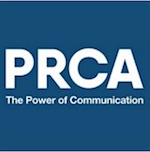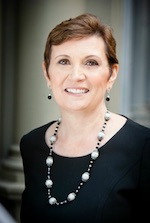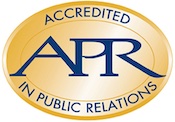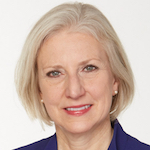The PR industry needs “advocates who can communicate with the media and general public,” said Francis Ingham, director general, PR Consultants Assn., London.
Ingham spoke in September after the 20,000-member PRCA expelled Bell Pottinger which had been accused of running a campaign that “inflamed racial discord” in South Africa.
|
|
|
|
The firm went into "administration" (similar to bankruptcy) after a campaign that triggered client defections, resignation of CEO James Henderson, five-year expulsion from the PRCA, and failure of consultant BDO to find a buyer.
PRSA, Other Groups Called on to Act
Ingham aimed his message of PR’s duty to “engage with the public” specifically at “anybody representing our business” which would include PR Society of America, Int’l Assn. of Business Communicators, PR Council and other trade groups.
PRSA abandoned its enforceable Ethics Code in 1999 and has seen its membership total stagnate since then. Enrollment of 19,600 in 2000 grew to only 21,000 in 2017. Revenues in 2016 of $11.3M were below revenues of $11.4M in 2006.
Modern PR is much more than traditional media relations but “an antagonistic relationship with traditional media means our story seldom breaks through to the business community or general public,” added Ingham, who is celebrating his tenth year as director general.
PRCA’s suspension of BP shows that members “will be held to account by its ethical code,” said Ingham. He added that “Agencies that aren’t members need to be able to justify their position.”
PRSA Is in Communications Breakdown
PRSA, facing the bone-rattling issue of whether “communications” should replace PR in “most places” in the bylaws, an issue to be decided Saturday by its Assembly, has lapsed into silence on the issue.
An outcry by members at the proposal forced leaders to say that the proposal was being amended. But changes can only be revealed at the Assembly in Boston, said Mark McClennan of MSL Group, 2016 chair. Membership discussion and debate on the PRSA website has been cut off.
Reporters are barred from covering the Assembly. In contrast, the Canadian PR Society not only allows press attendance but provides a live, interactive public webcast of its annual legislative body.
“PRSA should be advocating on behalf of public relations,” wrote Kay Barkin, MHMR, Fort Worth, on the PRSA website before discussion was cut off.
PRSA's Kane Defends Proposal
|
|
“Wouldn’t it be the role of PRSA to help individuals with all these different titles to understand they are part of PR, instead of simply making PR part of communications?” she asked.
Titles that Kane had mentioned in a response to her “would fit neatly under PR in the profession’s truest sense as strategies or tactics, and it seems to me PRSA should be advocating on behalf of PR,” she added.
Anthony Hicks of SRVS, Memphis, said “Completely eliminating the words PR from the bylaws of a professional assn. with PR in its official name, that is founded and grounded in PR, is a pretty significant move that seems to warrant a compromise.”
PRSA CCO Laura Kane, answering the critics, said only 13% of members have “PR” in their titles.
“We selected the term communications because it is more encompassing than PR,” she said, adding that “the intention of the bylaw was to address the importance of digital and social on the profession as it continues to evolve. What has traditionally been defined as PR is now being described as social media, digital communications, content management and influencer marketing among others.”
The reason for the change, wrote Kane, was “to take a forward look at where titles associated with our profession are headed.”

 Francis Ingham
Francis Ingham
 PRSA CCO Laura Kane
PRSA CCO Laura Kane
 PRSA-NY today announced its five honorary co-chairs for its Big Apple Awards ceremony gala slated for TAO Downtown on Nov. 15.
PRSA-NY today announced its five honorary co-chairs for its Big Apple Awards ceremony gala slated for TAO Downtown on Nov. 15. PRSA-NY president Carmella Glover today issued a "heartfelt apology" on behalf of the chapter for her Oct. 14 message that "caused disappointment and hurt to some of our valued members."
PRSA-NY president Carmella Glover today issued a "heartfelt apology" on behalf of the chapter for her Oct. 14 message that "caused disappointment and hurt to some of our valued members." The leadership of Public Relations Society of America is backing a move to change the current “must-have” APR accreditation to “strongly preferred” as a requirement for a seat on its board of directors.
The leadership of Public Relations Society of America is backing a move to change the current “must-have” APR accreditation to “strongly preferred” as a requirement for a seat on its board of directors. Public Relations Society of American today named Linda Thomas Brooks CEO, succeeding CFO Phil Bonaventura, interim chief since July 2019.
Public Relations Society of American today named Linda Thomas Brooks CEO, succeeding CFO Phil Bonaventura, interim chief since July 2019.


 Have a comment? Send it to
Have a comment? Send it to 
No comments have been submitted for this story yet.